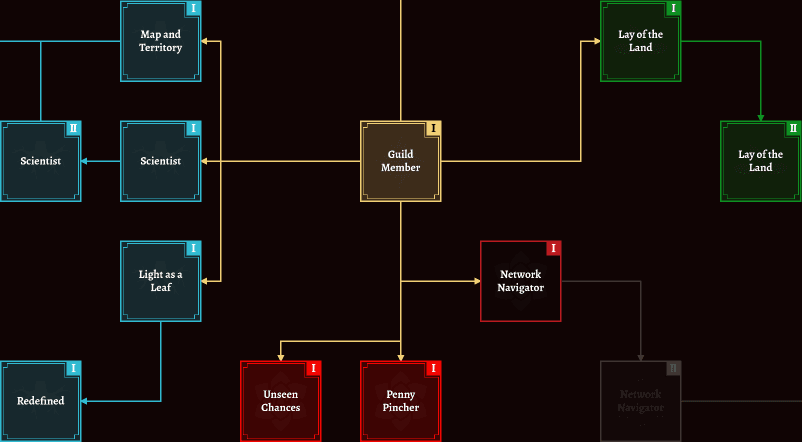Two years ago, we founded the Guild of the ROSE to provide structure and community for people interested in self improvement. Since then, we’ve grown from a three-month Alpha project to a year-round workshop host.
If you’ve been in our Discord server, you’ve probably seen regular announcements about people leveling up on the Practitioner’s Path, our RPG-inspired self improvement framework. You might even have heard rumors that we’ve been working on a new version of the Path.
Practitioner’s Path 2.0
The Practitioner’s Path 2.0 overhauls every aspect of the Path system, from Bugs to the Character Sheet to levels. The new system is split into three parts: Attributes, Tasks, and Skills. Together, these make up your Character Sheet.
Attributes
Attributes measure long-term metrics such as:
Net Worth (how much money you have)
Reach (how many people you can influence)
Stamina (the efficiency of your cardiovascular system)
The Attributes section of the Character Sheet gives a sense of long-term progress on tangible metrics. Of course, not everything can be tracked as a metric, which is where Skills and Tasks come in.
Tasks
A Task is something that you want to do or achieve. Tasks can be nested inside each other, representing the way that a complex goal can be split into smaller goals.
For example, the Task of “Learn how to program” could be broken into the subtasks of “Decide what language I want to learn” and “Find a tutorial on the language”. This nesting system allow you to break down complex goals into easily-achievable chunks.
Skills
The core of the new Path system is the Skilltree. Skills provide a structured approach to self-improvement and a sense of progression as you acquire them. Each skill has a certain amount of XP, allowing you to track your progress on a granular and broad level.
Skills in the Path are organized into three main categories: Pragmatist, Meditative, and Empiricist. Acquiring a Skill will only level up its category — so you can be a high-level Pragmatist but a low-level Empiricist. This division allows you to specialize in a given tree and pursue the Skills that you find most interesting and rewarding.
Pragmatist (red): Take direct action, make money, and expand your social network.
Meditative (green): Make art, improve your mental and physical health, and build a community.
Empiricist (blue): Learn new things, teach others, run experiments, and think clearly.
The Path 2.0 launches in early March, and we’ll be sharing more details about how it works in the weeks leading up to release.
In the meantime, which tree do you resonate most with? Let us know in the comments below!

I’m not entirely sure I would say the Guild is about competition, exactly. The Path system is inspired more by MMORPGs and tabletop RPGS. Yes, there are often competitive elements in those games, but it’s (usually) not front-and-center the way it is in, say, esports.
The Path system is meant to provide a sense of structure and progression. Rather than digging through a mountain of conflicting information and then figuring out how to apply it, you can just look at the Skilltree and do what’s next. Reducing that activation energy is key to self improvement — you can’t brute force everything with willpower and if you try, you’ll just burn out and quit.
And rather than applying techniques in a haphazard way and then forgetting about them, the Path keeps a record of what you’ve done. Being a level 20 Meditative means you’ve done quite a bit of work. What work exactly? Well, you can check the Skilltree page in your Character Sheet and see.
On the other hand, we know that individuals are often competitive, and we don’t want to discourage that. Competition is good! We might not host Quirrel-style army battles, but that’s more a matter of practicality than dislike.
In the Path 2.0 there are nine numbers-go-up style metrics to focus on, as well as separate experience and levels for each of the three trees. The Pragmatist tree also lends itself quite well to a competitive mindset with its focus on money, immediate action, and social networking — but you’ll have to wait till next week’s post for more details on the Pragmatist archetype.
I resonate most with the pragmatic tree and a little bit of the blue. I love whatever that can boost my ability to make more money and also impact others with it.
I reasonate more with the pragmatist. The need for immediate action in making money and social networking is my MO. This structure seems like a good guide to put myself into environments where this character can thrive better.